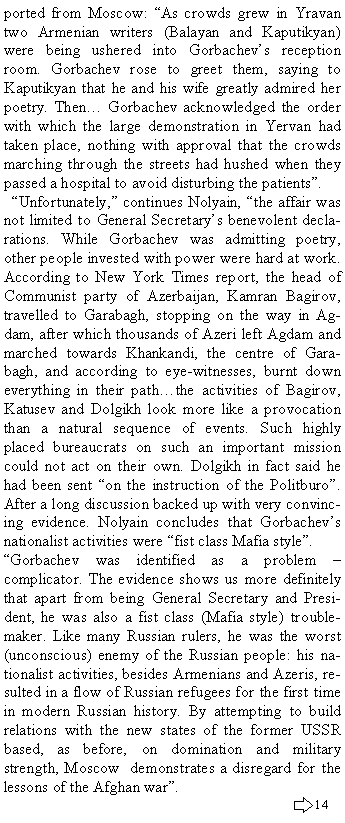|
Now 4.000 square miles of Caspian Sea is enclosed by five coastal states Azerbaijan, Iran, Kazakhstan, Russia and Turkmanistan - none of which have paid much attention to the ecological ruin in their midst. Western oil consortiums began to invest in the region in the early 1990s. BP operates three contracts in Azerbaijan alone, employing 800 local workers and expecting to have a workforce of 8.500 in the next few years. Yet most people are yet to reap the benefits of their country's natural wealth. Azerbaijan receives £104.5 million a year in oil royalties from BP. Yet two out of three live below the poverty line. more than 800.000 people have been displaced since the 1992 war with Armenia, during which the cities of Shusha, Lahij and Kalbajar, as well as Garabagh region were overtaken and are still occupied by Armenia. The refugees who live in unfavourable conditions have created social problems for the newly independent Azerbaijan.
Azerbaijan became independent on the 18th October 1991 after the disintegration of the Soviet Union. Elchi Bey became President in June 1992. Moscow created many obstacles and political problems for azerbaijan. Moscow helped the Armenians occupy Azerbaijan lands and take over Garabagh Mountains. Azerbaijan was the first former Soviet republic that Gorbachev sought to punish. He moved the Red Army into Baku in January 1990, killing and wounding hundreds of civilians on the streets of city.
Elchi Bey stayed in power for one year. While in government he demanded the Russian army leave Azerbaijan- the first former Soviet republic in the Caucasus to take such a courageous step. The Russian support of the Armenians in the war against Azerbaijan was a direct result of Azerbaijan's independence. In this article "Moscow's Initiation of the Azeri-Armenian Conflict" published in the Central Asia Survey (1994, 13), Igor Nolyain writes: "in connection with the Armenian demonstrations in February 1988 to rejoin Garabagh, the New York Times re
|
|
